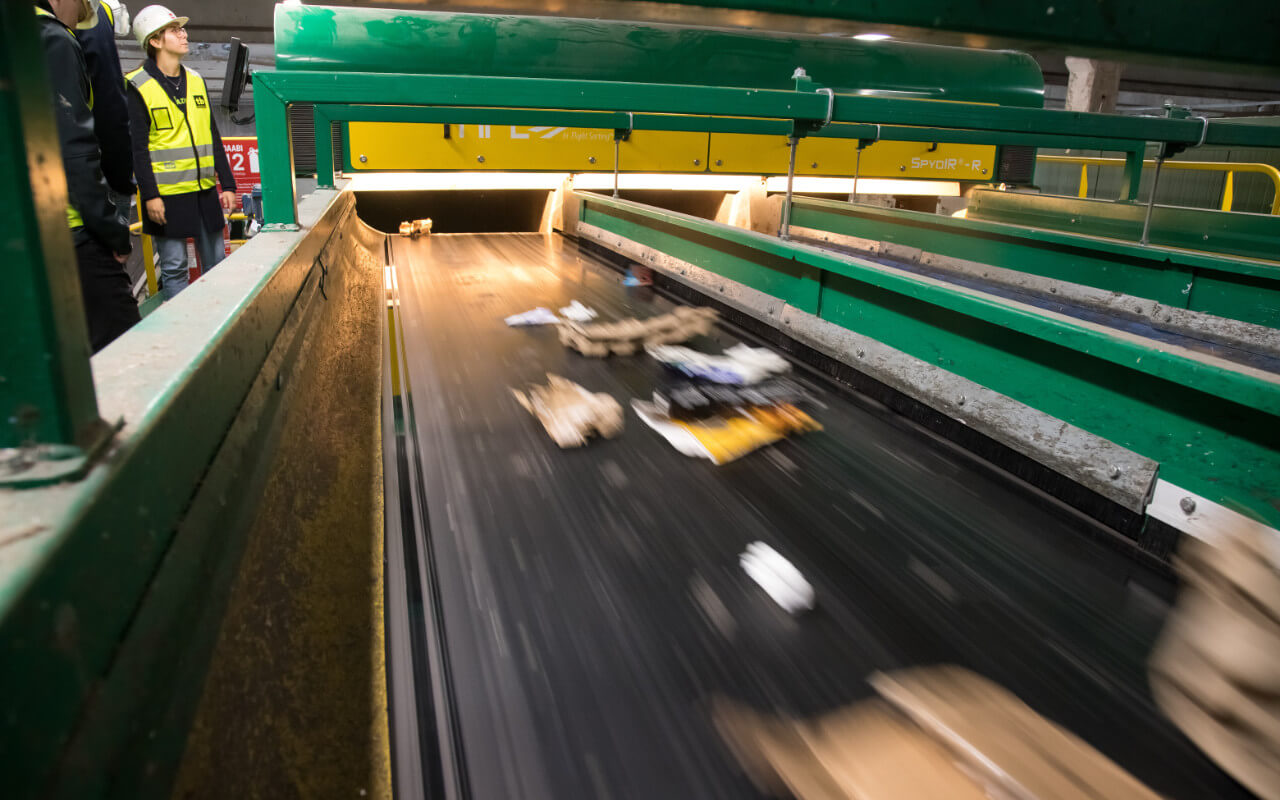Waste Management in Poland: Challenges and Opportunities

Poland’s waste management system has made notable progress over the past decade, but it still faces significant challenges in meeting European Union (EU) environmental standards. In 2022, Poland generated an average of 364 kilograms of municipal solid waste (MSW) per person, according to Eurostat, which is below the EU average of 513 kilograms. However, issues such as limited recycling infrastructure, high landfill usage, and regional inequalities persist.
The Current Situation
Technological Efficiency of Sorting Plants
Efficient sorting processes are crucial for recovering raw material fractions at the highest possible level from mixed and selectively collected plastic waste streams. Defining the technological level of sorting plants helps assess their ability to process required streams and waste volumes effectively.
Currently, Poland operates approximately 80 waste sorting facilities, but experts estimate that at least 150 technologically advanced sorting plants will be needed by 2035 to meet the EU's recycling and landfill reduction targets. This significant infrastructure gap highlights the urgency for investments in modern sorting technologies and facility expansions.
The technological level is measured by the following key factors:
- Adaptation to Waste Streams: The plant’s design must align with the specific waste streams it processes.
- Capacity: Adequate throughput to handle expected waste volumes efficiently.
- High Recovery Rates: Achieving a high recovery rate for raw material fractions.
- Fraction Diversification: Capability to sort raw materials into multiple material fractions.
- Durability and Build Quality: Robust infrastructure for consistent and long-term use.
- Scalability: Flexibility to expand as future demands evolve.
For medium-sized advanced sorting facilities, with a throughput of approximately 5-6 t/h for selectively collected plastics or 20 t/h for mixed municipal waste, these factors form the foundation of effective operations. Key processes include:
- Bag tearing
- Waste stream control
- Screening (fine, medium, and oversize fractions)
- Optical separation (using at least 6-7 optical separators)
- Ballistic and metal separation
- Fraction refining and compacting
Key Challenges in Waste Management in Poland
How Azortum Can Support Poland’s Waste Management Goals
Azortum offers expertise and innovative solutions to address Poland’s waste management challenges. Here’s how we can help:
- Innovative Sorting Technology
Azortum provides cutting-edge sorting systems that separate recyclables from mixed waste streams efficiently, enhancing material recovery and compliance with EU recycling targets . - Upgrading Waste Facilities
By collaborating with municipalities, Azortum can retrofit and modernize existing MBT plants to process biodegradable and separately collected waste, significantly increasing capacity and efficiency. - Energy Recovery Solutions
Our expertise in waste-to-energy technology helps municipalities recover energy from non-recyclable waste, reducing landfill dependency while generating renewable energy.
Opportunities for Growth in Waste Management
Poland’s current challenges also offer significant opportunities for development:
- Circular Economy Integration: By prioritizing material reuse and recycling, Poland can reduce its reliance on raw materials and support sustainable industrial practices.
- Private-Public Partnerships: Collaborations with companies like Azortum can accelerate the implementation of advanced waste management systems.
Conclusion
Poland’s journey toward sustainable waste management is at a critical juncture. By leveraging EU-aligned policies and fostering partnerships with industry leaders like Azortum, the nation can tackle its most pressing challenges. With investments in modern infrastructure, public education, and innovative technology, Poland is well-positioned to set an example in waste management excellence and achieve its environmental goals.
Cited Sources:
- The technological level of Polish municipal waste sorting facilities in the context of preparing them for recycling (2024)
Poland operates approximately 80 waste sorting facilities, but experts estimate that at least 150 technologically advanced sorting plants will be needed by 2035 to meet the EU's recycling and landfill reduction targets. - Eurostat Data on MSW Generation (2022)
Eurostat news release on municipal waste generation in Europe - Early Warning Assessment for Poland (2022)
A report assessing Poland's progress toward EU waste management targets, including landfill dependency and recycling rates - Poland Waste Prevention Country Profile (2021)
Country-specific analysis highlighting waste prevention measures, technological needs, and recycling infrastructure requirements in Poland
Expert Design & Installation for Your Waste Sorting System!
At Azortum, we specialize in crafting tailored solutions designed for sustainable operation and maximum profitability for your business. Contact us today to share the details of your next project—we’re eager to collaborate!
We have received your information and will be in touch with you shortly. Thanks!
